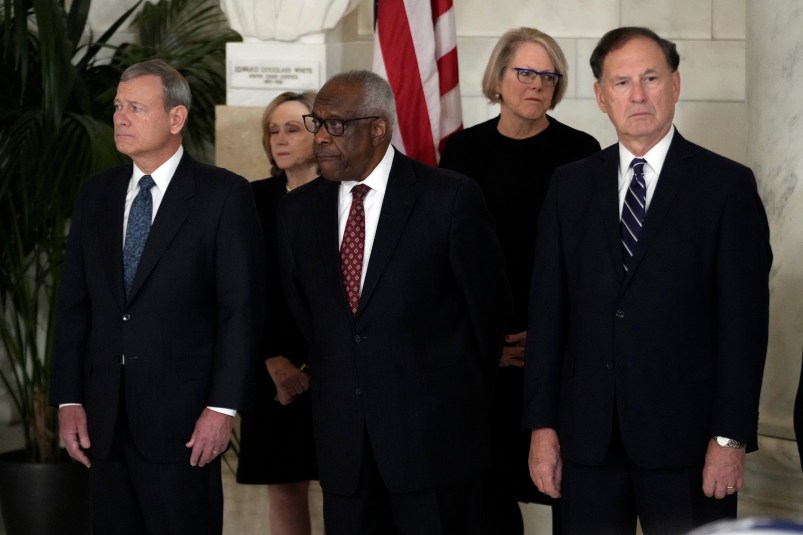As I’ve noted a few times over<$Ad$> the course of the last week, there is a real fissure running between the uniformed military and the politicals in Di Rita’s office over al Qaqaa.
And as was so often the case during the run-up to the war and since then, it’s fallen to two reporters at Knight-Ridder — Warren Strobel and Jonathan Landay — to bring us this part of the story.
While Di Rita and Co. were working on today’s spin operation, this story went out on the KR newswire under Landay’s byline.
Note this passage in Landay’s piece …
In a new disclosure, the senior U.S. military officer and another U.S. official, who also spoke on condition he not be identified because of the sensitivity of the matter, said that an Iraqi working for U.S. intelligence alerted U.S. troops stationed near the al Qaqaa weapons facility that the installation was being looted shortly after the fall of Baghdad on April 9, 2003.
But, they said, the troops took no apparent action to halt the pillaging.
“That was one of numerous times when Iraqis warned us that ammo dumps and other places were being looted and we weren’t able to respond because we didn’t have anyone to send,” said a senior U.S. military officer who served in Iraq.
As Landay’s sourcing makes clear, this was coming out of the career military, not from the president’s appointees.
Earlier this year, Strobel and Landay won the Raymond Clapper Memorial award for their prescient reporting on the Iraqi WMD question. And in an article on the award, Strobel — Landay’s colleague — described the methods behind much of their award-winning reporting …
Strobel says their conclusions came from a lot of extra digging and source-building they were forced to do without the red-carpet access to high-level officials that some of the nation’s top media outlets enjoy.
“Knight Ridder is not, in some people’s eyes, seen as playing in the same ball field as the New York Times and some major networks,” Strobel says. “People at the Times were mainly talking to senior administration officials, who were mostly pushing the administration line. We were mostly talking to the lower-level people or dissidents, who didn’t necessarily repeat the party line.”
Those sources, Knight Ridder Washington Editor Clark Hoyt adds, were “closest to the information.”
“I’m not saying we didn’t have any top-level sources,” Strobel says, “but we also made a conscious effort to talk to people more in the bowels of government who have a less political approach to things.”
Their effort paid off in the fall of 2002, when a story critical of the administration’s case for war generated a small, but encouraging, response. “We got two or three unsolicited calls from people in government saying, ‘You’re asking the right questions. Keep it up,'” Landay recalls.
…
“As the pressure built on the administration and their case got shakier and shakier, there was obviously a lot greater stress, and there was some shouting that was done at us over the telephone,” Hoyt says. Some of those calls came from well-known names in high places, Bureau Chief John Walcott adds, declining to drop any names.
Around that time, the White House turned up the pressure, Strobel says, and “tried to freeze us out of briefings.”
Landay adds: “I think this administration may have a fairly punitive policy when it comes to journalists who get in their face. And if you talk to some White House reporters, there is a fear of losing access.” He says that fear may have played into the relatively uncritical approach of news organizations like the Times.
A little shoe-leather goes a long way.






